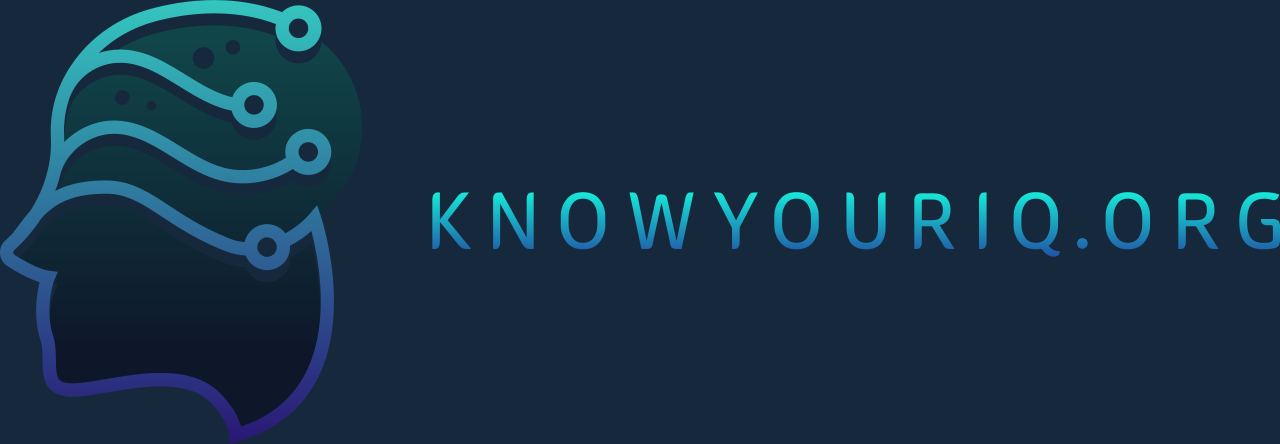About IQ
IQ, or Intelligence Quotient, is a measure of a person’s cognitive abilities in relation to their age group.
IQ is often assessed through standardized tests designed to evaluate various aspects of intelligence, such as logical reasoning, problem-solving skills, language comprehension, memory, spatial visualization skills, and mathematical ability.
An individual’s IQ score is measured by comparing their test results with the average scores of people in the same age group, typically with a mean score of 100.
IQ tests aim to quantify intellectual potential, but they do not encompass all forms of intelligence or the complexity of human cognitive abilities.
Knowing your IQ score can provide insight into your cognitive strengths and weaknesses, potentially guiding educational and career choices. It may help identify areas where you could benefit from further development or areas where you excel, enabling you to tailor learning and development strategies to your needs.
However, it’s important to remember that IQ scores are not comprehensive measures of one’s abilities or potential, as intelligence is multifaceted and cannot be fully captured by a single number. Understanding your IQ can be a part of self-awareness, but it should not define your sense of worth or capabilities.
Generally, IQ tests are designed to assess your natural cognitive abilities rather than knowledge or education, so extensive studying or preparation is not required.
However, familiarizing yourself with the format of the test and practicing problem-solving, logical reasoning, and pattern recognition can help reduce anxiety and improve performance by making you more comfortable with the types of questions asked. Adequate rest and a clear mind can also positively affect your test performance.
About Our IQ Test
You will have 20 minutes to complete our test.
No, you will not be able to pause the test once you’ve started it, so make sure that you have the allotted time to complete it ahead of time.
Currently, you can’t skip questions and return to them later.
Our IQ test consists of 20 questions.
You can take our test as many times as you want. But be aware that you will have to pay to get the test results each time.
There is no age limit for taking our IQ test. However, those under the age of 18 are permitted to use our services only with the supervision of a parent or legal guardian.
Here are some tips for getting the most accurate test results:
- Find a quiet place where you can focus
- Read the questions carefully
- Don’t rush through the questions
- Double-check your answers
- When in doubt, trust your gut
IQ Test Results
IQ scores can vary between different tests due to variations in test design, the specific cognitive abilities each test measures, and the scoring scales used. Therefore, it’s common to see some discrepancies in IQ scores across different tests.
Currently, there is no possibility to access the results later.
Your results will be shown after the payment is completed, and it is your responsibility to save your results if you want to access them later.
Currently, you’re only able to share our website on X (Twitter) and Facebook.
After completing the test, you will be directed to the payment page. Once you complete your payment, you will receive the score of your IQ test.
Unfortunately, we don’t give out the correct answers to our test.
Pricing and Payment
You do not have to pay to take this IQ test. However, payment will be required to receive your IQ test results.
Our website supports Paypal as a payment method.
We do not offer refunds except in instances of technical issues or duplicate payments.
Common Problems
Please use our Contact Us page to alert us of this issue.
Sure! Use our Contact Us page to let us know where the misspelling is located and we will do our best to fix it.
Other Questions
The average IQ score is 100.
Albert Einstein is often associated with IQ tests due to his iconic status as a symbol of genius and intellectual achievement.
Einstein’s exact IQ is not known, as he never took a modern standardized IQ test. Estimates of his IQ are speculative and typically range around 160 or above, based on assessments of his intellectual achievements and contributions to physics, particularly his development of the theory of relativity.
Improving your IQ and brain function can be approached through consistent mental and physical activities.
Engaging in challenging cognitive tasks like puzzles, reading, learning new skills, or playing musical instruments can stimulate brain growth and enhance neural connections. Regular physical exercise, maintaining a healthy diet rich in omega-3 fatty acids, getting adequate sleep, and managing stress through mindfulness or meditation are also crucial for brain health.
While one’s fundamental IQ may have genetic limitations, these practices can optimize cognitive function and potentially lead to improvements in areas measured by IQ tests.

